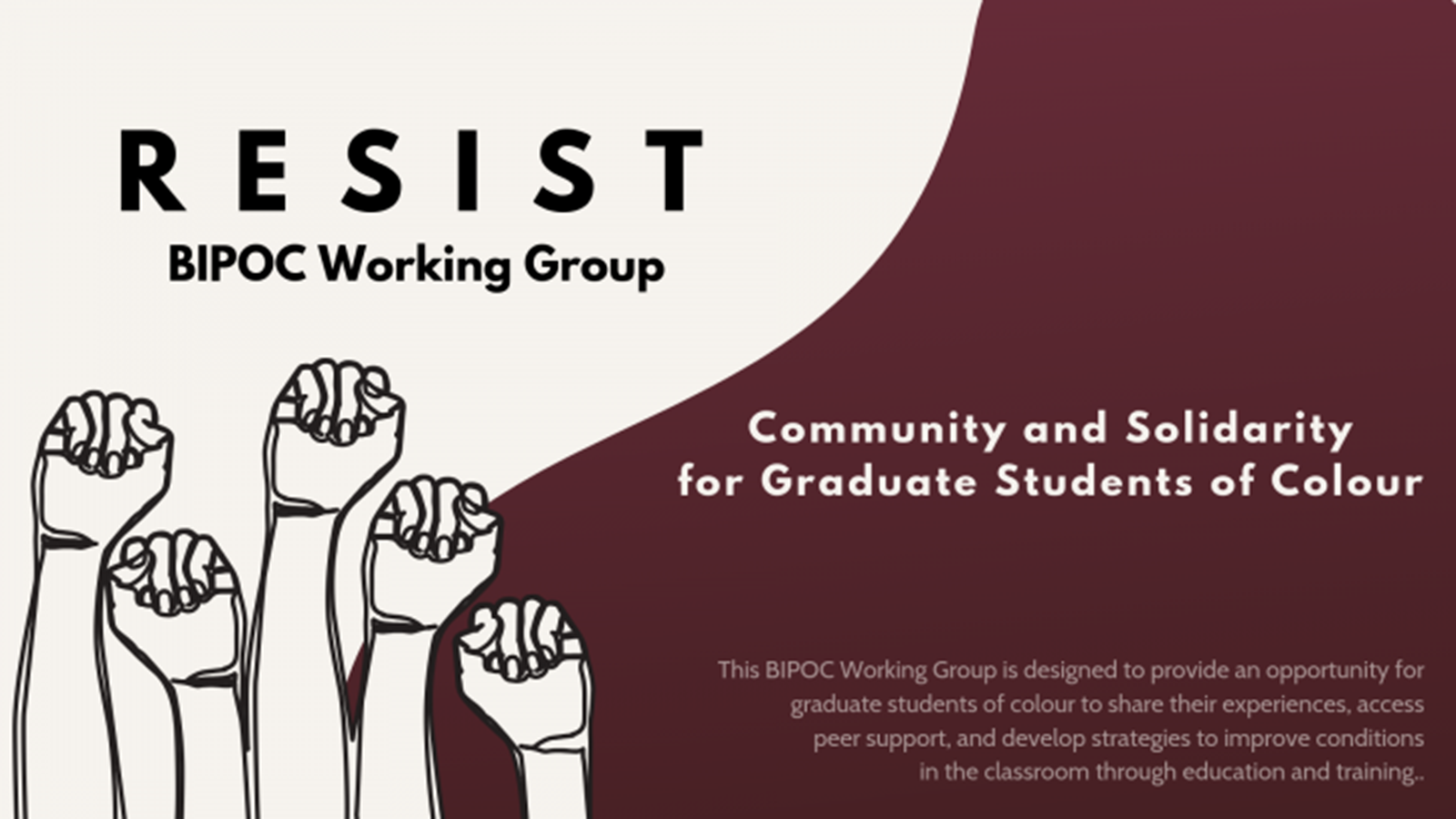
The BIPOC Working Group is designed to provide an opportunity for students of colour to share their experiences, access peer support, and develop strategies to improve conditions in the classroom through education and training.
Expandable List
In the current socio-political climate, faculty, students, and staff frequently discuss race in humanities courses in order to understand the political, cultural, and literary narratives that structure their experiences and at the same time, navigate their complex relationships to local, national, and world events as well as their role(s) within the McMaster community more specifically. While I recognize the urgency and value of these discussions as a Master’s student in English & Cultural Studies, not every student–or staff member–is equipped to talk about race with the care and sensitivity that it requires. During these discussions, the burden falls disproportionately on students of colour because not only are they exposed to dehumanizing rhetoric, but they often feel pressure (from their peers, professors, and/or their past experience) to address problematic arguments or analysis and they do not necessarily feel supported in their efforts.
In my first year in the program, I faced racism in the classroom on a weekly basis and despite the professor’s best efforts to address it, I often felt obliged to address the problem as one of few racialized students in the class. On occasion, I found that even mild comments followed me to my office afterwards when one of my peers approached me to re-litigate his position on the n-word (and during the exhausting, hour-long discussion, he repeated the slur three times, even though I explained that as a Black woman, I am acutely conscious of its potential for harm). I am far from alone; in fact, many of my peers have faced racist comments without the support of their professors–or from their professors–and when I’ve shared my experience with graduate students of colour outside the department, they often have horror stories of their own.
The BIPOC Working Group would fill a unique role on campus because it would exist specifically to provide graduate students with concrete strategies for navigating the classroom and on mobilizing our collective knowledge to develop resources that could serve future students departments at a critical point in Dr. Arig al Shaibah’s tenure as she works on a strategic plan for Equity and Inclusion. While the Let’s Talk About Race Series provides facilitated discussions on a drop-in basis, they fill a different (and much-needed) niche and they do not presently publish any of their meeting notes due to concerns about confidentiality. Similarly, the Equity and Inclusion Office is best-placed to provide workshops and support individual students with self-advocacy, including, but not limited to, formal complaints–an avenue that graduate students are often reluctant to pursue because they have to work closely with their professors and peers for years at a time.
The BIPOC Working Group will meet on a monthly basis to provide (graduate) students of colour with access to peer support as they navigate a majority-white campus and in doing so, to foster a sense of community and solidarity across departments and disciplines. We hope to develop strategies for students–and staff–to address racism from faculty, classmates, and peers; to provide evidence-based recommendation to faculty; and to work collaboratively with existing offices to develop classroom guidelines and training (e.g., for Teaching Assistants) that will meaningfully improve the experiences of current and future students.
We will reach out to graduate students, not only in our cohort and department, but across the university through social media, a poster campaign, targeted advertising through SGS and EIO, etc.
We will use our meetings not only to provide support, but to identify the needs of graduate students across departments and disciplines.
Each meeting will involve an “Oral Billboard” for students to share their recent experiences and a “Strategy Session” to talk about practical solutions, steps, and/or resources to support them.
Every other meeting will involve resource development, so that we can mobilize our skills in service of our overall mandate (i.e., long-term support).
Project liaison: Aisha Wilks, Faculty of Humanities, MA student in the department of english and cultural studies, Expected Completion: 2020
Treasurer: Theresa Kenney, Faculty of Humanities, PhD student in the department of english and cultural studies, Expected Completion: 2022
Our roles will include promotion and outreach, coordination, finances, monthly facilitation, record-keeping, and resource development in collaboration with group members.
- We expect to develop a supportive community of BIPOC graduate students.
- We plan to create resources that will remain available through Avenue to Learn (A2L).
- We hope to submit recommendations to the Equity and Inclusion Office (EIO) based on our weekly discussions.
- We would like to facilitate workshops in partnership with EIO during Teaching Assistantship Training to ensure that TAs are equipped for questions about race in the classroom.
- We intend to work collaboratively with PACBIC’s R3 and the Equity and Inclusion Office and in doing so, create a sustained partnership that will support future graduate students.
We will have two meetings to plan over the summer 2019 and reach out to the Equity and Inclusion Office as well as PACBIC’s R3 to formalize a partnership.
We will conduct promotion and outreach from August to September 2019, including facilitating a workshop during TA Training with support from the School of Graduate Studies (SGS) and individual departments as needed.
We will meet on a monthly basis from September to April 2019 with a focus on peer support and community building (esp. in the first half) and resource development, training, etc. in the second half.
From January to February, we will compile resources and develop recommendations for submission to the Equity and Inclusion Office.
From March to April, we will complete a report for submission to SPICES and discuss next steps, including possible community outreach initiatives (e.g., working with local schools or partnering with Mohawk students).
